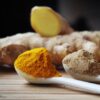Have a few days passed since not going to the toilet? When you eventually do, is it hard and a strain to pass? Do you feel like there is still more to go? Sounds like constipation to me. It’s the frustration and the cramping pain that is the worst and nine times out of ten increasing your fluid intake or increasing your fibre intake will relieve symptoms. Sometimes constipation can be more than that; there can be an underlying problem or nutrient deficiency causing it. Here we look at some of those lesser known causes and solutions.
Lack of Exercise
Living a sedentary lifestyle or having restricted movement due to a disability can affect bowel movements. Exercise can stimulate the bowel making it easier going to the toilet and the counter affect to exercise is the need for additional fluids, which as we know not enough fluid can contribute to constipation. Additionally there are some specific exercises that can stimulate the bowel. Try flutter kicks by lying on your stomach and kicking your feet like you’re swimming. Leg lifts, in which you simply lie on your back and lift your legs at least 30cm off the ground and hold for 10 seconds, repeat 3 to 5 times and L-shaped tilting can be done by lying on the floor and using your legs to make an L shape and extend your arms upwards. Breathe slowly and tilt your body up to a sitting position, try this exercise 5 times over.
Gut Health
The use of probiotics is gaining momentum worldwide to help aid and treat many disease states and constipation is no different. Studies have shown the use of probiotics, Bifidobacterium Lactis in particular, to be very beneficial in improving gut microbiota and relieve constipation symptoms. Include prebiotic foods such as onion, chicory, garlic, asparagus, banana and artichoke to stimulate intestinal microflora.
If you or your child are experiencing constipation regularly, come and see the team at Ruth Fellowes office and see how changes to your diet and lifestyle can assist you.





